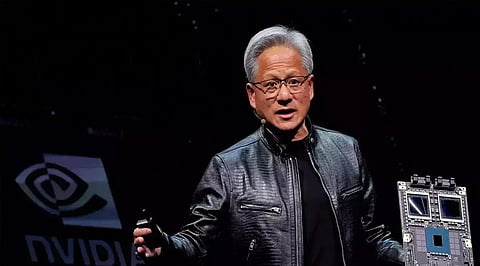

NVIDIA CEO Jensen Huang has extended his support for US President Donald Trump's decision to increase the H-1B visa application fee to $100,000. According to the White House, the executive order, announced last month, would apply to new applicants and not renewals.
Speaking on the BG2 Pod, Huang discussed the policy as "a great start" for reforming immigration. He said that although the $100,000 cap is high, it may help hinder illegal immigration and create a substantial entry barrier. Huang also described the symbolic role of immigration in his own life, recalling his own immigrant journey of arriving in the United States with limited financial resources.
He said America's strength was its world brand as the land of opportunity. "America has one singular brand reputation that no country in the world has - the American dream," Huang said.
Huang's stamp of approval comes as NVIDIA continues to hire a large number of H-1B workers. According to a Business Insider analysis, the company had 1,519 H-1B visa holders among its total of 36,000 global employees as of the end of its fiscal year 2025. This makes NVIDIA one of the tech industry's largest employers of H-1B workers in the US.
In a separate interview with CNBC, Huang reiterated his belief that immigration is vital to America's future. He said that attracting the "brightest minds" continues to be key to the country's technological leadership. He referred to immigration as "the foundation of the American dream". He emphasized that reform should focus on enabling the best and brightest from around the world to contribute to US innovation.
Also Read: TCS Hits Four-Year Low Amid US H-1B Visa Fee Hike, BSE Overtakes NSE in Expiry Turnover
While Huang supports the measure, other industry leaders have raised some hackles. Critics suggest that a significant increase in fees could deter qualified applicants and encourage individuals to leave for other countries.
According to Andrew Ng, co-founder of Google Brain, the added fee creates a sense of uncertainty, which is weakening America's competitiveness. The policy would cause US innovation to decline and create a negative long-term trend, a warning issued by economist and Nobel Prize laureate Paul Krugman. Investor Kevin O'Leary also warned that the high costs could hinder the growth of startups by driving entrepreneurs offshore. The Trump administration believes the move prioritizes American workers over foreign applicants.
